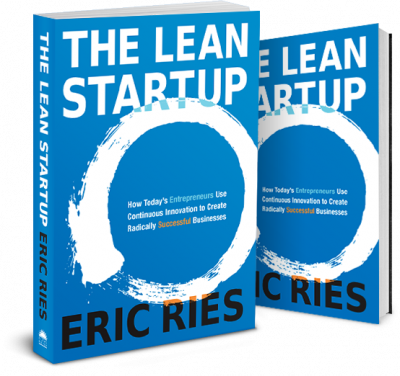When starting a business, there are many ways to get going. Some people start off doing something for fun and people offer to pay them for their work. Other’s set out to start a business, as Trav and I did with Epic Day. Many people ask, “Is there a way to guarantee success when starting a business?”
The short answer is NO. But there are ways to hedge your bets so you have a better chance of success. Today we’ll talk about how to validate your business idea before you waste too much time.
Starting Lean with an MVP
Have you ever read a book and thought, ‘this person just put perfect words to that exact thing in my life?’ Well that’s how I felt after I read The Lean Startup: How Today’s Entrepreneurs Use Continuous Innovation to Create Radically Successful Businesses for the first time.
I learned plenty from the book, but when Eric Ries talked about an MVP (Minimally Viable Product) I thought to myself how many times I’d just tried things to see if they worked with basic preparation. Instead of talking about things and planning them for weeks, I’d go run an experiment and see what the results were.
An MVP is a product or service that is the most basic version of your vision. It doesn’t include fancy bells & whistles, it performs the basics of your perceived solution to a customer’s perceived problem(s).
The purpose of an MVP is to put something in front of a customer to see if they will pay you for it or not. It is also meant to save you, the entrepreneur, time and money from building products nobody is willing to pay for. After you get their feedback early on, you can improve it instead of guessing at what consumers want for from behind closed doors.
My Version
Travis knows this all too well. For the months that we worked together on Epic Day, I was constantly the one that wanted to push hard and put ideas/products out there before they had been polished clean.
I still utilize this method today. In fact, I used it last week. Two weeks ago I pitched someone on my services to help them rebuild their website. This is something I’ve done before and have helped a number of people with on the side, but have never been paid for.
Since I have done this before I knew most of what he would need, but I wanted to give him more than just the basics. I wasn’t sure what his full intentions were for his website, so I did my best to guess. I sent this prospect what I would want if I were in his shoes.
Turns out I was wrong, he didn’t want everything I sent him. He countered back, as all smart entrepreneurs do, and we negotiated a fair package for both of us. He gets a new site, I’ve got a new client, we both win. AND I don’t have to do a bunch of additional work that I won’t get paid for.
Had I spent weeks working on my own website first, then coming up with specific packages at specific prices, then setting up time-frames, then…. I would have wasted a ton of time. I just pitched what I thought would be a good fit, and then I listened to what the customer said.
Yes, listening is still very important!
The next time I pitch someone on my services, I’ll take what I learned from this experience and apply it to the next. I’ll still try to sell some more of my services and show my value, but I’ll put emphasis on different areas that we talked about when renegotiating the contract to better serve the next potential customer. This is known as the ‘Build-Measure-Learn’ feedback loop, something I learned from Mr. Ries.
Validation
So now that I know what someone in this customers shoes are looking for, I can begin to tailor my new website (pickadirectionmarketing.com – not live yet) to offer services and packages that someone like him would be interested in.
It goes against the grain to sell something, then build it. But that’s how validated learning works. This is extremely hard for big companies that are run by policies and guidelines to accomplish. But since I’m one man and I’m just starting on this journey, I can pivot all I want.
Other forms of validation look similar to this:
Let’s say I have a friend that is a software developer. They want to make some custom software for my barstool business. I tell them what I want then they tell me the capabilities and give me a price. After I pay for it, then they start building it for me based off of the afore mentioned capabilities.
If they’re any sort of businessperson they will make improvements to it once I get their MVP and I should be offered a discount for being their guinea pig. But after it’s all said and done, I have a custom piece of software and they now know what people in the barstool business need. They can begin pushing it to other barstool companies.
Have you ever built an MVP? What was is it, and did you learn from it?
—
Chat with me on Twitter or leave a comment below with your thoughts on MVP’s and validating your business ideas.
—

